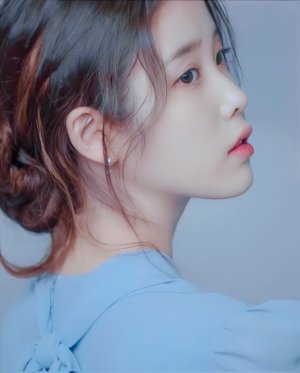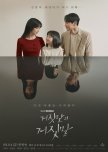Cette critique peut contenir des spoilers
If you want to cry, cry for kdramas...
If you want to cry, cry for kdramas ... I think this is a good phrase for those who like me are adept at melodramas (makjangs). And that is what happened to me (I cried a lot) when watching Lie After Lie, which I think is my first drama since it was aired by Channel A. Drama that from the beginning caught my attention by the casting and the plot. After all, how can you not get excited about a drama starring Lee Yoo Ri (from Father is Strange, Yellow Boots and Jang Bo laughs), Yeo Jung Hoon (who appears completely different from Mask's villain) and having Lee Ill Hwa as antagonist? I think this is almost impossible. And in addition, we have a synopsis that gives a sample of how far a mother can go, making me ask, how far can a lie take us? Is there a lie that is not entirely questionable? Is everything that we see that is established as truth really true? Questions that for me were gradually being answered with the plot of a mother who, due to her mother-in-law's selfishness and greed, had to serve the sentence for the death of her abusive, beating husband.
Reading the synopsis, some may think that the drama has exaggerations, super dramatic situations, but despite any impression that the script may cause, we have scenes that are far from representing any exaggeration, because even Lee Yoo Ri's cry is painful, but at the same time, restrained and the pain is not shown through scandal, but through a facial expression that denotes through the look, a look associated with an almost shaky voice shows in a subtle way the protagonist's suffering. And this mother is joined by a father, a male protagonist who represents in an exemplary way the notions that have developed about what it means to be a man who is whole, generous and welcoming, in a non-caricatural way, because Kang Ji Min also hates, he is also upset, he also gets angry, however, all these feelings are expressed in a non-violent way, in a way that does not hurt and that demonstrates the respect he has for human beings.
We see in both protagonists a sense of justice in the terms established by that definition, more than anything, what Kang Ji Min and Ji Eun Soo seek and protect what they have most precious, that is, their daughter, without resorting disloyalty nor hurting other people. And all this fight for justice we see in 16 episodes, with an agile script. Perhaps some technical flaws and use of another cliché? Yes, but these are details ...
Reading the synopsis, some may think that the drama has exaggerations, super dramatic situations, but despite any impression that the script may cause, we have scenes that are far from representing any exaggeration, because even Lee Yoo Ri's cry is painful, but at the same time, restrained and the pain is not shown through scandal, but through a facial expression that denotes through the look, a look associated with an almost shaky voice shows in a subtle way the protagonist's suffering. And this mother is joined by a father, a male protagonist who represents in an exemplary way the notions that have developed about what it means to be a man who is whole, generous and welcoming, in a non-caricatural way, because Kang Ji Min also hates, he is also upset, he also gets angry, however, all these feelings are expressed in a non-violent way, in a way that does not hurt and that demonstrates the respect he has for human beings.
We see in both protagonists a sense of justice in the terms established by that definition, more than anything, what Kang Ji Min and Ji Eun Soo seek and protect what they have most precious, that is, their daughter, without resorting disloyalty nor hurting other people. And all this fight for justice we see in 16 episodes, with an agile script. Perhaps some technical flaws and use of another cliché? Yes, but these are details ...
Cet avis était-il utile?
























